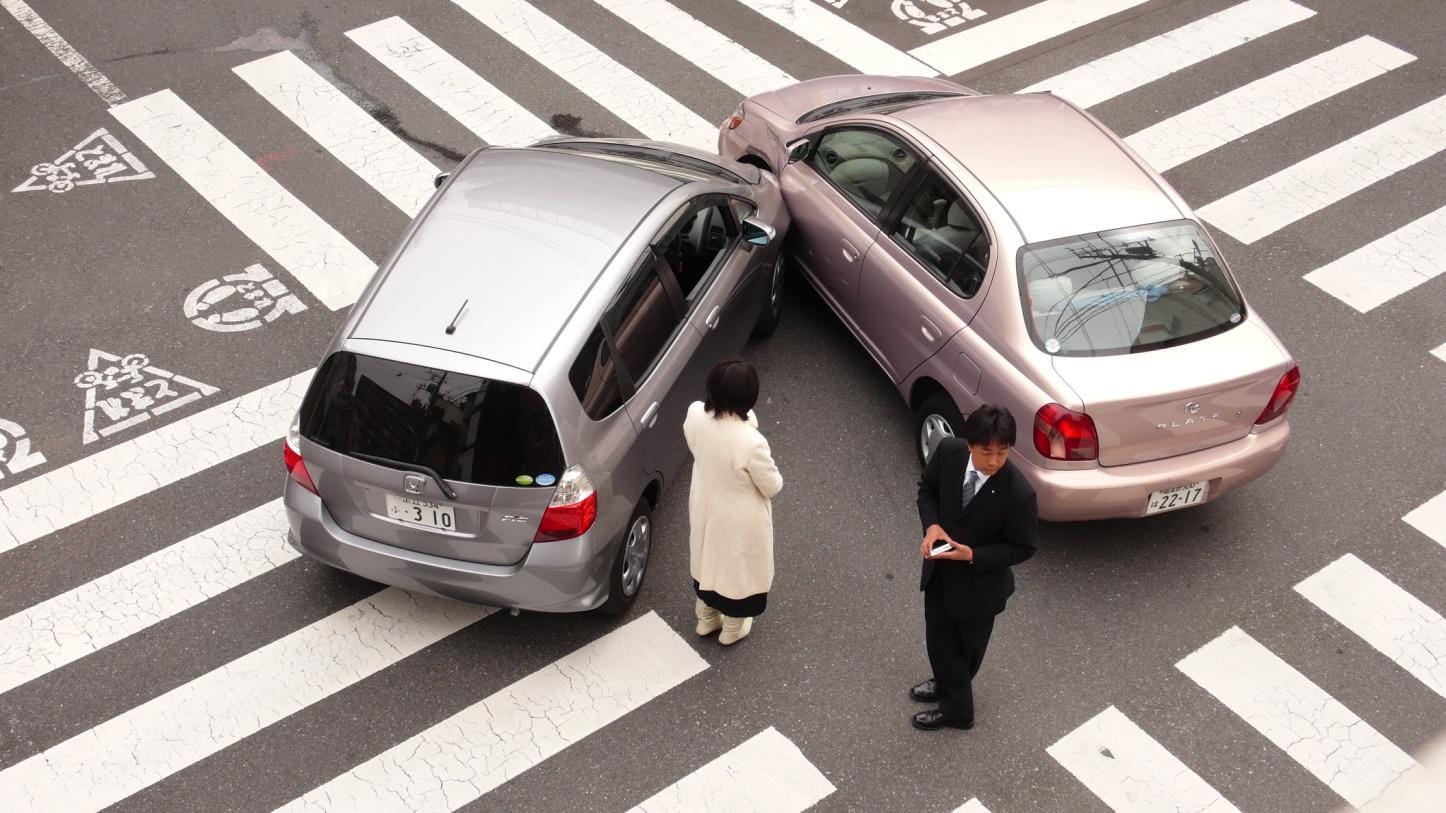
Confusion and panic often set in in the aftermath of a car accident, leaving individuals uncertain about the proper steps to take. One common question arises: “Is moving your car after a car accident illegal?” Understanding the nuances of Nevada laws regarding this matter is crucial for anyone navigating the aftermath of a collision. In this article, we’ll delve into the specifics of Nevada laws, the legal consequences of moving your car after an accident, and why seeking legal guidance may be essential.
The Initial Moments After an Accident: To Move or Not to Move?
Deciding whether to move your vehicle can be pivotal in the chaotic moments following a car accident. Nevada law does not explicitly forbid moving your car after an accident, but there are factors to consider. The accident’s severity, the presence of injuries, and the extent of property damage play significant roles in determining the appropriate course of action.
Nevada Law on Moving Your Car After an Accident
Nevada provides guidelines on what drivers should do after an accident through its revised statutes. According to Nevada law, drivers involved in an accident resulting in injury, death, or damage to property exceeding $750 must immediately stop at the scene. They must exchange information, including names, addresses, and insurance details. However, the law does not explicitly state whether it’s illegal to move your car after an accident.
Is It Illegal to Move Your Car After an Accident?
No, it’s not always illegal to move your car after an accident. In many cases, it is recommended to move your vehicle to the side of the road to ensure your safety and that of others. However, if there are injuries, significant damage, or specific legal requirements in your jurisdiction, it might be advisable to leave the vehicles where they are until authorities arrive.
When Can You Move Your Car?
The decision of when to move your car after an accident is often influenced by various factors, including the accident’s severity, the presence of injuries, and the extent of property damage. While there isn’t a blanket prohibition against moving your car in Nevada, it’s essential to consider the following guidelines:
Safety First: Prioritize the safety of everyone involved in the accident.
The severity of the Accident: Assess the damage to all vehicles involved; if it’s minor and can be safely moved, consider doing so.
Injuries and Medical Attention: Attend to injuries promptly, especially in serious cases; Nevada law requires notifying the police.
Police Involvement: If the accident is minor and without injuries, you may not need to wait for the police to exchange information with the other driver.
Hit and Run Incidents: If involved in a hit and run, gather information, move your car to safety, and promptly accident report to the police.
Obstruction of Traffic: If safe, moving vehicles in a high-traffic area is advisable to prevent further accidents and maintain traffic flow.
Exchange of Information: Regardless of moving your car, exchange essential information with the other driver for insurance claims and dispute resolution.
The Role of the Police: Reporting the Accident and Seeking Assistance
When a car accident occurs, involving the police can be essential. In Nevada, the law requires individuals involved in an accident to immediately notify the police and share all details with the police officer regarding how the accident happened, especially if there are injuries or fatalities. The police report is crucial in determining fault and facilitating insurance claims.
If the accident results only in property damage and no injuries, it might not be necessary to wait for the police to arrive. In such cases, exchanging information with the other driver, including license plate numbers and insurance details, is crucial for filing a car accident claim later.
Hit and Run Incidents: Legal Consequences and Reporting Obligations
Hit-and-run accidents pose unique challenges. Nevada hit-and-run laws are strict, and leaving the scene of an accident without exchanging information or rendering reasonable assistance can lead to severe consequences. If you are the victim of a hit and run or witness one, providing as much information as possible, such as the driver’s license plate number and a description of the other vehicle, is crucial for law enforcement.
Insurance Claims and Legal Assistance: Navigating the Aftermath
Once you’ve ensured everyone’s safety and reported the accident to the police, the next step is filing an insurance claim. Whether you are at fault or not, notifying your insurance company promptly is crucial for a smooth claims process. Insurance companies may investigate the accident scene, gather evidence, and assess the extent of property damage and injuries.
In cases involving serious injuries or disputes over fault, seeking legal guidance becomes paramount. An attorney experienced in Nevada car accident laws can navigate the complexities of the legal system, ensuring your rights are protected and helping you pursue fair compensation.
Determining Fault and Liability: Nevada’s Comparative Negligence System
Nevada follows a comparative negligence system, meaning that fault can be apportioned between multiple parties involved in an accident. Understanding your degree of fault and how it impacts your ability to seek compensation is crucial. In cases where you are partially at fault, Nevada law allows you to recover damages proportionate to the other party’s negligence.
Property Damage and Personal Injury Lawsuits: Seeking Compensation
Whether the accident only results in property damage or serious injuries, compensation for damages is a primary concern. Nevada law allows individuals to pursue compensatory damages for medical expenses, property damage, lost wages, and pain and suffering; in cases where negotiations with insurance companies prove challenging, filing a personal injury lawsuit may be necessary to secure fair compensation.
Why You Need a Lawyer: Navigating the Legal Maze
Car accidents are legal minefields, especially when serious injuries or disputes over fault are involved. While minor accidents with only property damage might be straightforward to handle independently, seeking legal representation becomes crucial in more complex cases.
An experienced car accident lawyer can:
Assess Liability: Determine who is an at-fault driver and to what degree, considering Nevada’s comparative negligence system.
Handle Insurance Claims: Communicate with insurance companies, negotiate settlements, and ensure you receive fair compensation for damages.
Navigate Legal Proceedings: If a personal injury lawsuit becomes necessary, a lawyer can guide you through the legal process, ensuring all necessary evidence is presented and deadlines are met.
Protect Your Rights: Insurance companies may attempt to minimize payouts. A lawyer advocates for your rights, preventing you from being taken advantage of during negotiations.

Explore Your Legal Options with BLG
In the aftermath of a car accident, the question of whether it’s illegal to move your car is just one piece of a complex puzzle. Understanding Nevada laws, reporting the accident promptly, and navigating insurance claims are crucial steps in securing compensation for damages. In cases involving serious injuries or disputes over fault, the expertise of a car accident lawyer can make all the difference. Remember, seeking legal guidance ensures that you can focus on recovery while professionals handle the legal intricacies on your behalf.
If you find yourself grappling with the aftermath of a car accident in Nevada, the experienced team at BLG is here to help. Navigating the complexities of Nevada laws, insurance claims, and potential legal proceedings can be overwhelming, but you don’t have to face it alone.
Contact us today for a free consultation.
FAQs
What is the statute for leaving the scene of an accident?
The specific statutes for leaving the scene of an accident can vary by jurisdiction, as traffic laws are typically determined at the state or national level. In many places, however, leaving the scene of an accident without reporting it is considered a criminal offense. Penalties may include fines, license suspension, and even imprisonment, depending on the severity of the incident.
Why is it important to move your vehicle to the side of the road if you are involved in an accident?
Moving your vehicle to the side of the road after an accident is crucial for safety, easy access to emergency services, traffic flow, and better documentation of the accident scene.
Is it illegal to drive around a car accident?
Whether it’s illegal to drive around a car accident depends on local traffic laws. Generally, it may be illegal if it involves violating traffic rules or disobeying law enforcement instructions. Follow guidance from authorities at the scene for safety and legal compliance.
What happens when you hit someone and leave the scene?
Leaving the scene of an accident, especially if there’s injury or property damage, is a serious offense. Consequences may include criminal charges, fines, license suspension, and imprisonment, depending on the severity and local laws. Stay at the scene, exchange information, and report the accident to avoid legal repercussions.





